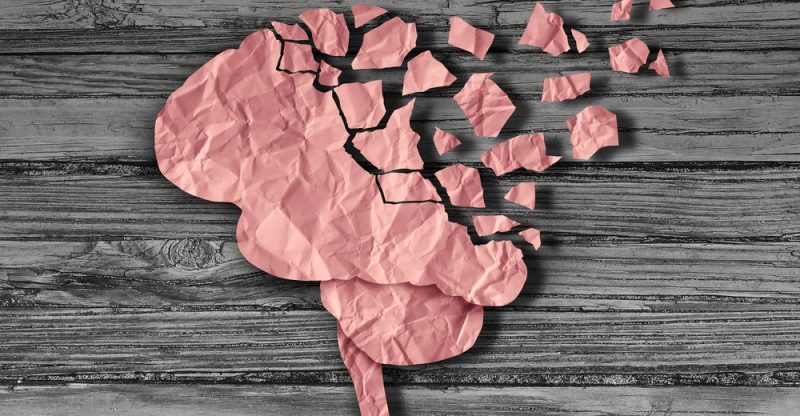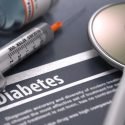10 Protein Deficiency Symptoms
Protein deficiency is a condition that can lead to malnutrition. With symptoms like fatigue, weakness, and weight loss. It’s important to get treatment for this condition as soon as possible.
Protein is essential for everyone, whether you’re a weekend warrior, trying to lose weight, or an athlete, and you don’t want a protein shortfall.
Even while most people get enough protein on a “normal Western diet,” many do not eat the best quality sources of protein, and as a consequence, they may be lacking in key critical amino acids.
How can you tell whether you need more protein? Weakness, increased appetite, and exhaustion are typical of protein shortage symptoms.
In this post, we’ll look at the advantages of eating more protein-rich foods in general and strategies to include more high-quality protein in your diet, and how much you should eat depending on your weight, gender, and activity level.
What Is Protein Deficiency?
Protein is defined as “a class of compounds made up of large molecules made up of one or more long chains of amino acids that are essential components of all living organisms, particularly as structural components of body tissues such as muscle, hair, collagen, and other connective tissues, as well as enzymes and antibodies.”
Protein may be thought of as the building blocks of your body. It’s in many foods you consume, and it may help you speed up your metabolism and burn more fat.
Protein-rich foods offer us amino acids, some of which we must get via our meals since our systems cannot produce them on their own. “Essential amino acids” are what they’re termed.
Amino acids may be found in various foods, including vegetables, but the best supplies come from animals, such as meat, dairy, eggs, fish, and, to a lesser degree, some plant foods like beans and seeds.
Proteins make up the body’s vital organs, muscles, tissues, and even certain hormones. Proteins also produce hemoglobin and essential antibodies.
Proteins are involved in almost every bodily function, from blood sugar regulation to wound healing and bacterial defense.
Certain proteins are also crucial, although not vital, in the aging process. Indeed, some research suggests that low protein consumption, regardless of source, is linked to a modest increase in the risk of all-cause death in older persons.
Simply stated, life would not exist without proteins, so protein shortage must be avoided.
Causes
Hypoproteinemia is another term for protein insufficiency (a condition in which a person has very low levels of protein in the blood).
In terms of specific protein requirements, each individual is different. How much protein you require depends on your body weight, gender, age, and degree of activity or exercise, and your needs are likely to change from day to day.
Proteins are consumed daily to maintain the body’s functioning. They’re continually broken down and must be supplied by foods in your diet. They’re essential to build, grow, and maintain just about every aspect of our bodies — from our skin and hair to our digestive enzymes and immune system antibodies.
You may notice a decline in your general health if you don’t eat enough protein.
What makes you vulnerable to protein deficiency? The following are some of the risk factors:
- Eating a vegan or vegetarian diet, which is devoid of animal protein sources.
- Being really active and putting forth a lot of effort.
- Due to gut-related difficulties, you’re having difficulty absorbing protein.
- Absorption might be disrupted by excessive alcohol consumption and the use of certain medications.
- Severe protein insufficiency is especially frequent in children in underdeveloped nations who do not eat a wide range of meals or enough calories.
Signs/Symptoms
What do the signs and symptoms of protein deficiency look like? According to certain studies, protein shortage may cause both short- and long-term effects. It may, for example, raise the risk of cataracts, heart issues, and muscular atrophy, all of which are frequent among the elderly.
These symptoms may occur if you eat too little protein:
- Appetite increase
- Slow metabolism is a condition in which the body’s metabolism is s
- Having difficulty reducing weight
- Building muscle mass is difficult, and current muscular mass is eroding.
- Fatigue and a lack of energy
- Poor focus and learning difficulties
- Moodiness and mood fluctuations are common.
- Pain in the muscles, bones, and joints
- Changes in blood sugar levels that may lead to diabetes
- Poor wound healing and skin health, including elasticity loss
- Immunity is low.
Here’s more on how protein deficit might affect your health, as well as warning signals that your diet may be low in key amino acids:
1. You have a high cholesterol level.
High cholesterol and triglycerides are caused by increased inflammation, hormone imbalances, and high-processed/high-sugar diets, not merely by consuming fatty foods.
If you eat sugary snacks, refined carbohydrates, and packaged convenience meals instead of protein sources, your cholesterol may increase as your liver and cells metabolize fats inefficiently.
Some studies have even shown a link between protein consumption and the risk of heart disease.
2. You’re more nervous and moody than usual.
Neurotransmitters that regulate your mood are made up of amino acids. Proteins aid in producing hormones such as dopamine and serotonin, which aid in the elicitation of good emotions such as relaxation, enthusiasm, and optimism.
3. Your workouts are in jeopardy.
Studies demonstrate that a higher protein diet is preferable to a lower protein diet for building fat-free mass in athletes. Protein is necessary not only for the growth of new muscle mass but also for maintaining your energy and drive.
Muscle atrophy (wasting), weariness, and even fat gain may arise from a low-protein diet. It might also cause the female athlete triad, a condition that causes irregular periods and bone loss. If your food isn’t appropriate for tissue regeneration or energy demands, you might work out more yet get fewer benefits.
4. You aren’t getting enough sleep.
Insomnia and poor sleep may be connected to blood sugar fluctuations, a spike in cortisol, and a reduction in serotonin synthesis. During the day, blood sugar oscillations extend over into the night.
Carbohydrates need far more insulin than fat or protein. Eating protein-rich meals before night may aid in the creation of tryptophan and serotonin while having little impact on blood glucose levels. Protein really decreases the absorption of sugar throughout a meal.
5. You suffer from brain fog.
Protein is required for a variety of facets of normal brain function. For example, low levels of neurotransmitters that help you concentrate, such as dopamine, epinephrine, norepinephrine, and serotonin, may cause brain fog, poor attention, motivation, and difficulty learning new material.
Amino acids are used to produce neurotransmitters in the brain, and studies suggest that eating a well-balanced diet with adequate protein may improve job performance, learning, and motor abilities. In addition, the l-glutamine in bone broth may aid with brain fog.
6. You can’t go to the restroom because you’re gassy.
Amino acid intake is essential for a variety of metabolic and digestive activities. If your body is weary and worn down due to a protein shortage, enzyme synthesis, GI tract muscle contractions, and digestion will all suffer.
7. You’re seeing that your clothes are becoming tighter.
According to several studies, low-protein diets contribute to increased food intake, body weight, and fat mass.
High-protein meals, although being heavier in calories than carbohydrates or fats, enhance satiety to a larger degree than carbohydrates or fats, preventing overeating and snacking. They also aid in maintaining blood sugar balance, enabling you to maintain greater muscle mass, which burns more calories throughout the day, and lower cravings.
8. You have an irregular menstrual cycle.
The disorder known as the polycystic ovarian syndrome is one of the most prevalent causes of irregular periods and infertility in women (PCOS). Obesity and pre-diabetes or diabetes are two key risk factors for PCOS; insulin resistance affects 50–70% of all women with PCOS.
Low-protein, high-sugar/high-carb diets may cause insulin resistance, lethargy, inflammation, and weight gain, which can throw off the delicate balance of female hormones (such as estrogen, progesterone, and DHEA) required for a regular cycle.
9. You’ve been getting hurt easily and are taking longer to recover.
A low-protein diet might increase your chances of falling, bone weakening, fractures, and possibly osteoporosis. This is because calcium absorption and bone metabolism are both aided by protein.
According to studies, elderly persons with a low protein diet of 16–50 grams per day had the most bone loss. A diet rich in amino acids has also been shown to aid in treating muscle loss caused by aging.
10. Your hair, nails, and skin aren’t as healthy.
Proteins, such as collagen and elastin, make up the majority of connective tissue, skin, hair, and nails. When your diet lacks collagen and specific amino acids, it might be more difficult to heal wounds, retain young skin texture, and keep thick hair from breaking.
Requirements
Including protein-rich foods in your meals is the greatest method to receive all of the important amino acids you need. This is true for both persons who consume animal protein and those who have a plant-based diet.
Daily, the typical human requires half of their body weight in grams of protein. So, if you weigh 150 pounds, you’ll need at least 75 grams of protein each day to burn fat and develop muscle effectively. More than that, though, will be necessary for many athletes.
- According to the US Food and Drug Administration, the recommended daily minimum protein consumption for individuals of average weight and activity level is 56 grams per day for males and 46 grams per day for women. However, these are considered minimal quantities, so they may be insufficient if you’re really busy, pregnant, or unwell.
- These numbers equate to around 0.36 grams of protein per pound of body weight; however, some individuals find that increasing their protein consumption to about 0.5 grams per pound of bodyweight makes them feel better.
- A lady weighing 150 pounds should consume around 75 grams of protein per day, whereas a guy weighing 180 pounds should consume approximately 90 grams.
- If all of this arithmetic sounds complex, keep in mind that most experts suggest that protein meals account for 20% to 30% of your total calories.
Overall, the best way to obtain adequate protein is to consume a variety of plant-based and animal-based foods. The flexitarian diet is a term used to describe this strategy.
While animal products provide more protein per calorie than most plants, eating too much meat, dairy, fish, or eggs daily isn’t a good idea and comes with its own set of disadvantages (such as being less environmentally sustainable, more expensive, and more acidic).
Vegetarian proteins are frequently a good source of fiber, antioxidants, electrolytes, and other minerals, so consider substituting plant-based protein items for meat in your meals as often as possible. Furthermore, research reveals that human systems may use amino acid recycling pathways to finish imperfect plant proteins.
- All sorts of beans and legumes, notably adzuki beans, mung beans, and lentils; nuts and seeds, such as almonds, flax, chia, and hemp; unprocessed/ancient grains, such as oats, buckwheat, amaranth, farro, or quinoa; and unprocessed/ancient grains, such as oats, buckwheat, amaranth, farro, or Consuming sprouted nuts, legumes, and grains have the extra benefit of making their amino acids more absorbable once consumed.
- Even certain vegetables have a high protein content, particularly when compared to their low-calorie content. Spinach, kale, broccoli, Brussels sprouts, and mushrooms are some of the vegetables that might help you get more protein.
- Several new and interesting protein powders have lately been introduced to the market. Pea protein, cricket protein (yep, manufactured from ground-up bugs!) are just a few examples. In addition, bone broth protein powder is available. Consuming these sorts of powders has several advantages since they provide much more than just protein – for example, bone broth contains collagen and glucosamine, which are beneficial to your GI system, joints, and skin.
- Grass-fed beef, organic chicken and turkey, and wild-caught salmon are the finest protein sources in meats.
Conclusion
- Protein deficiency, commonly known as hypoproteinemia, is a disorder in which a person’s blood has relatively few necessary amino acids.
- What happens if you don’t get enough protein? Weakness, a slower metabolism, diminished strength and exercise performance, loss of attention, emotional disorders, and other concerns may indicate this sort of deficiency.
- Whether you follow a plant-based or animal-based diet, the best way of acquiring adequate amino acids is to include foods like meat, dairy, eggs, fish, yogurt, beans, nuts, seeds, and whole grains in your diet.
- Aim for 0.4 to 0.5 grams of protein for every pound of body weight.
Frequently Asked Questions
What are the symptoms of a protein deficiency?
A: A protein deficiency is when a person does not have enough amino acids necessary for life, which can lead to poor or weakened immune function. The symptoms will vary depending on what amino acids are lacking from the diet and how severe their condition is.
What does protein deficiency cause?
A: Protein deficiency is a condition where you have less protein in your body than normal. It can cause different health problems depending on the person and their circumstances. Some possible symptoms are skin lesions, hair loss, joint pain, fatigue, muscle cramps or stiffness
FDA Compliance
The information on this website has not been evaluated by the Food & Drug Administration or any other medical body. We do not aim to diagnose, treat, cure or prevent any illness or disease. Information is shared for educational purposes only. You must consult your doctor before acting on any content on this website, especially if you are pregnant, nursing, taking medication, or have a medical condition.
HOW WOULD YOU RATE THIS ARTICLE?





